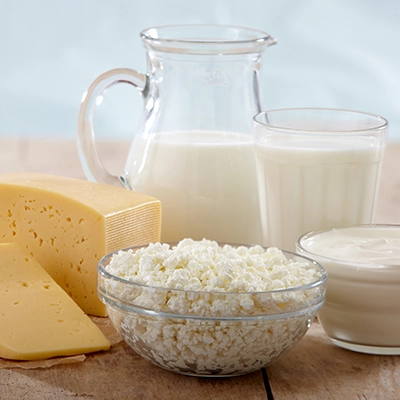Low-Fat Yogurt Before High-Fat Meals Reduces Inflammation in Women
Among today’s most popular diet trends, more and more people are looking to identify and eat foods that may help reduce inflammation. A new study suggests that yogurt may be one such food.
A new clinical trial showed that eating 8 ounces of low-fat yogurt prior to a high-fat, high-calorie meal reduced inflammation markers and improved glucose usage after the meal in women. Why is the period after the meal important?
Abnormal metabolism of nutrients following a meal is associated with vascular dysfunction (e.g. impaired blood flow) and high blood sugar, which are risk factors for chronic disease. The healthy body works to break down, absorb, use and store the nutrients found in the foods and beverages consumed during and after a meal. However, sometimes this process does not work as smoothly as it should.
Picture a city (i.e., the body) and its diverse neighborhoods (i.e., tissues and organs). A traffic jam not only impacts the neighborhood that the cars are trying to get to, but also other neighborhoods as the cars struggle to get past the backup. This is what can happen in the body — disturbances in metabolism after a meal can impact how the body functions and lead to inflammation.
Indeed, inflammation after meals is associated with increased risk for insulin resistance, which can lead to high blood sugar, and atherosclerosis. Fortunately, studies have shown that low-fat milk and whey protein can help reduce blood sugar after meals (postprandial hyperglycemia) and help maintain vascular function (e.g. maintain normal blood flow).
Let’s look at this study a little closer: This was a sub-study of a nine-week clinical trial that showed that eating 1.5 servings of low-fat yogurt daily reduced biomarkers of chronic inflammation and improved indicators of intestinal barrier function (i.e., keeping good stuff in and letting bad stuff out) in women.
In this experiment, healthy women ate either 8 ounces of low-fat yogurt or soy pudding immediately before eating a high-fat, high-calorie test meal. The soy pudding was used as a control food in the study to provide a basis for comparison with yogurt, and it was matched with the yogurt for nutrient content, calories and texture. Biomarkers of inflammation and intestinal barrier function were assessed hourly for four hours after the meal. The researchers found that eating low-fat yogurt before the meal improved biomarkers of intestinal barrier function, reduced inflammation markers associated with eating high-fat, high-calorie meals and improved glucose metabolism.
These findings add to the emerging evidence showing a link between eating yogurt with reduced risk of type 2 diabetes. This acute study shows the impact of eating low-fat yogurt before a meal on helping to reduce markers of inflammation after a high-fat, high-calorie meal. The next time a patient, client or friend asks, “Which anti-inflammatory foods should I eat?” you can share the emerging research on low-fat yogurt!















